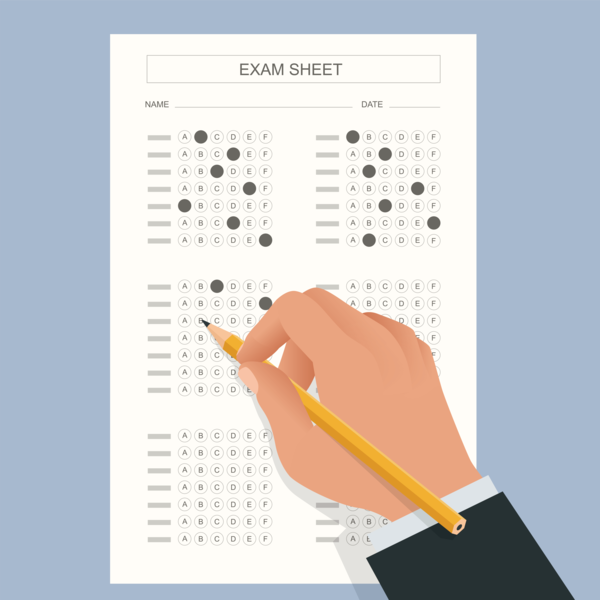
The CSAT is meant, as defined, to assess the capability of studying at the university level. Hence, efforts to change the essence of the university entrance examination system should be directed towards evaluating the abilities and qualities that high school graduates aspiring for university admission should meet. Furthermore, there should be endeavors to outline the prerequisites for achieving success in studying at the university level. However, the CSAT has evolved in response to changes in the educational environment primarily to mitigate social conflicts associated with university admissions. It has not been recognized as a valid and discerning assessment tool for measuring the student's proficiency of learning at the university level. Ultimately, beyond the debate concerning the discontinuation of "killer questions," the more crucial task is to bring about a fundamental change in the perception of the university admissions system.
'Killer questions' refer to exam questions that go beyond the scope and level of the standard curriculum, which takes place within the concepts learned at school, making it difficult for students to prepare for them through formal school education. These questions have aimed to differentiate the top tier of students. However, in reality, these "killer questions" have reinforced a mechanical approach to learning, where students focus solely on memorizing and learning what might be set on the test. Therefore, it undermines the environment of true learning which enhances student's ability to think for themselves or building basic knowledge relevant to their future careers. Mechanical solutions to such problems and exam questions that go beyond the curriculum can only be learned through supplementary education. Furthermore, considering the relative evaluation system of CSAT, it's inevitable that private education emphasizing pre-learning would be necessary to achieve higher scores. The private education market of Korea has expanded in this context. Therefore, let's look into the admission systems of Hong Kong and France, recognized as educationally advanced OECD countries, Having a curriculum that considers students' diverse abilities and achievements comprehensively, in line with the core objectives of education.
First, Hong Kong implemented a relative assessment-based admission and education system in the 1990s due to its high emphasis on education and intense competition. Consequently, the private education market grew correspondingly. However, starting from 2012, Hong Kong transitioned to a 7-level system for admissions called HKDSE (Hong Kong Diploma of Secondary Education) and made efforts to expand open-ended and descriptive questions. These changes aimed to move away from rote memorization-based education. Likewise, through reforms in the assessment system aimed at addressing existing issues and enhancing educational competitiveness, it ultimately contributed to raising the qualitative level of education.
In the case of France, universities are not ranked hierarchically and the system is not based on a selective admissions process like Korea. Instead, after passing the Baccalauréat, a high school graduation qualification exam, individuals have the opportunity to apply to and study at any university of their choice. With a university enrollment rate of around 62% in France, most students can pursue their desired majors at their preferred institutions. Furthermore, the Baccalauréat features descriptive questions for all subjects, including mathematics. Hence, the emphasis lies more on the process of solving problems and one's own analysis and reasoning, rather than just providing the correct answers. Consequently, rote learning is not beneficial. Additionally, students have the choice to choose exam subjects based on their individual interests and strengths. This allows them to exercise their strengths to the fullest during the examination process and focus intently on building the competencies necessary for their desired major's university admission. Unlike Korea, both Hong Kong and France have been able to conduct university admissions without generating excessive competition. This situation is not solely achieved by adjusting the difficulty level of the exams. They are focused on producing talents suitable for universities in line with the fundamental purpose of admissions and on standardizing education to enhance the quality of education itself.
The issue of private education caused by the current CSAT had essentially become chronic. Therefore, regardless of the arguments for or against about the killer questions, the fact that the government addressed the private education issue is viewed positively, considering that it will continue to be debated or addressed in the future. The Korean government should thoroughly consider and reflect on the cases of other countries and persistently seek appropriate alternatives to provide better education evaluation systems.

